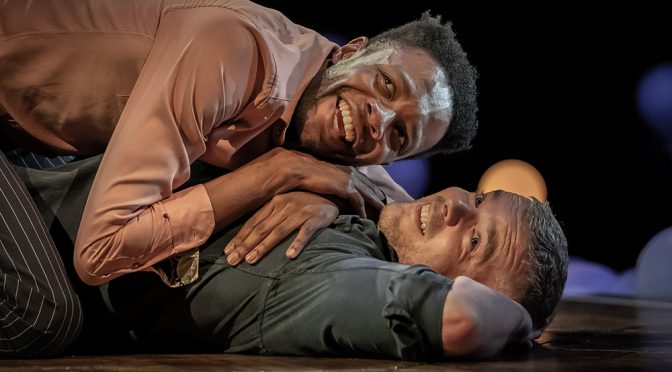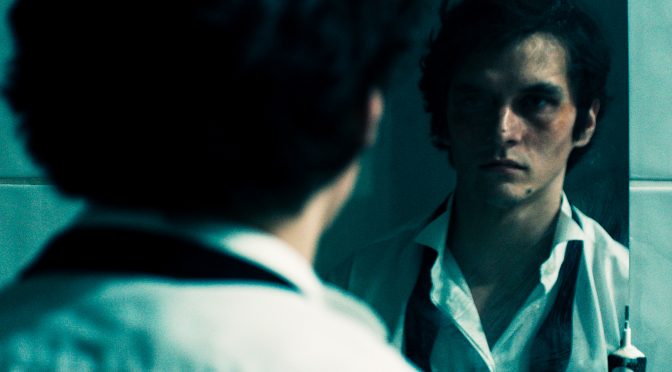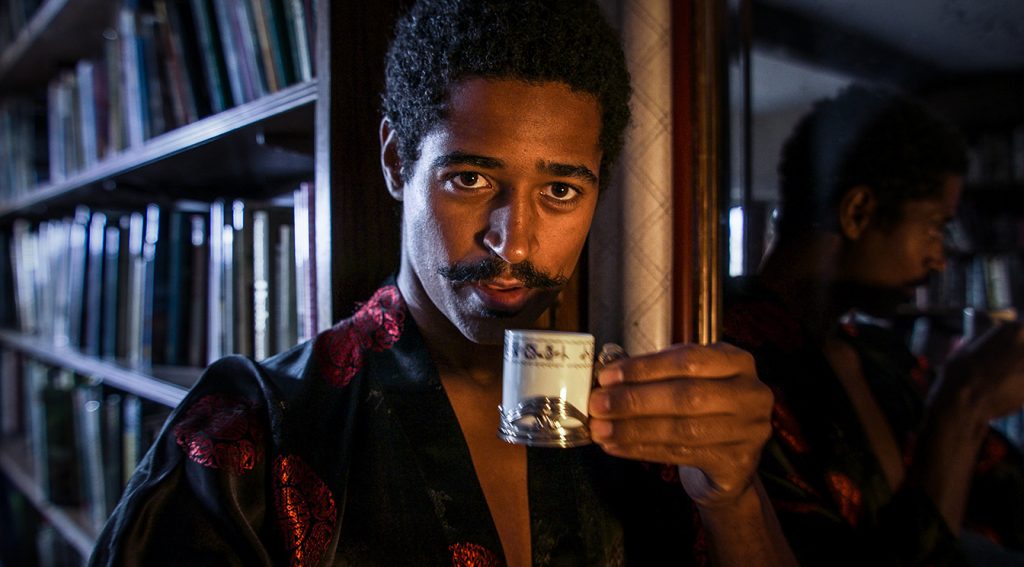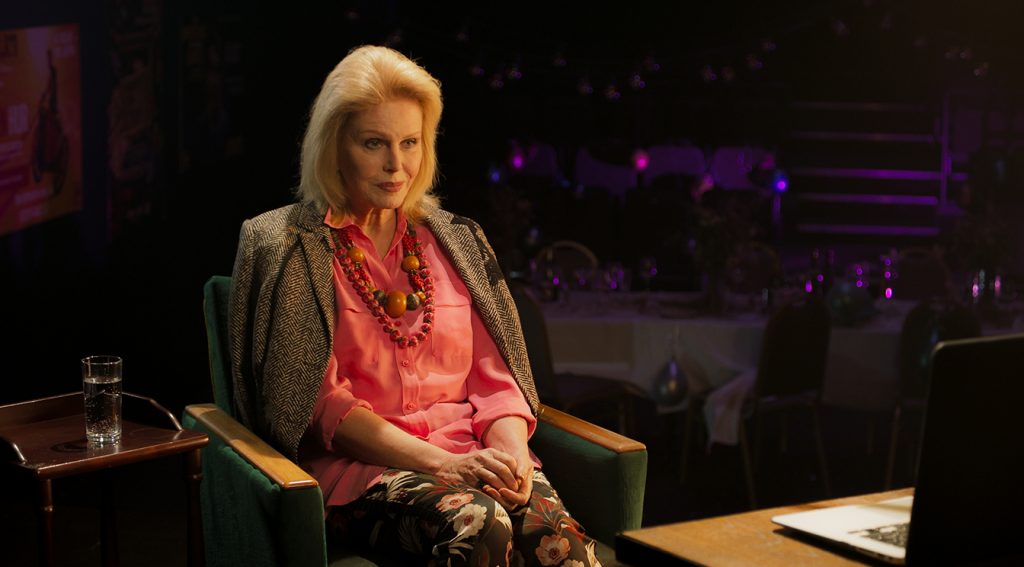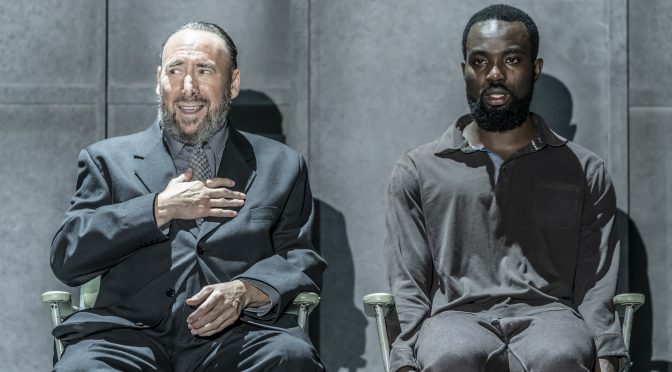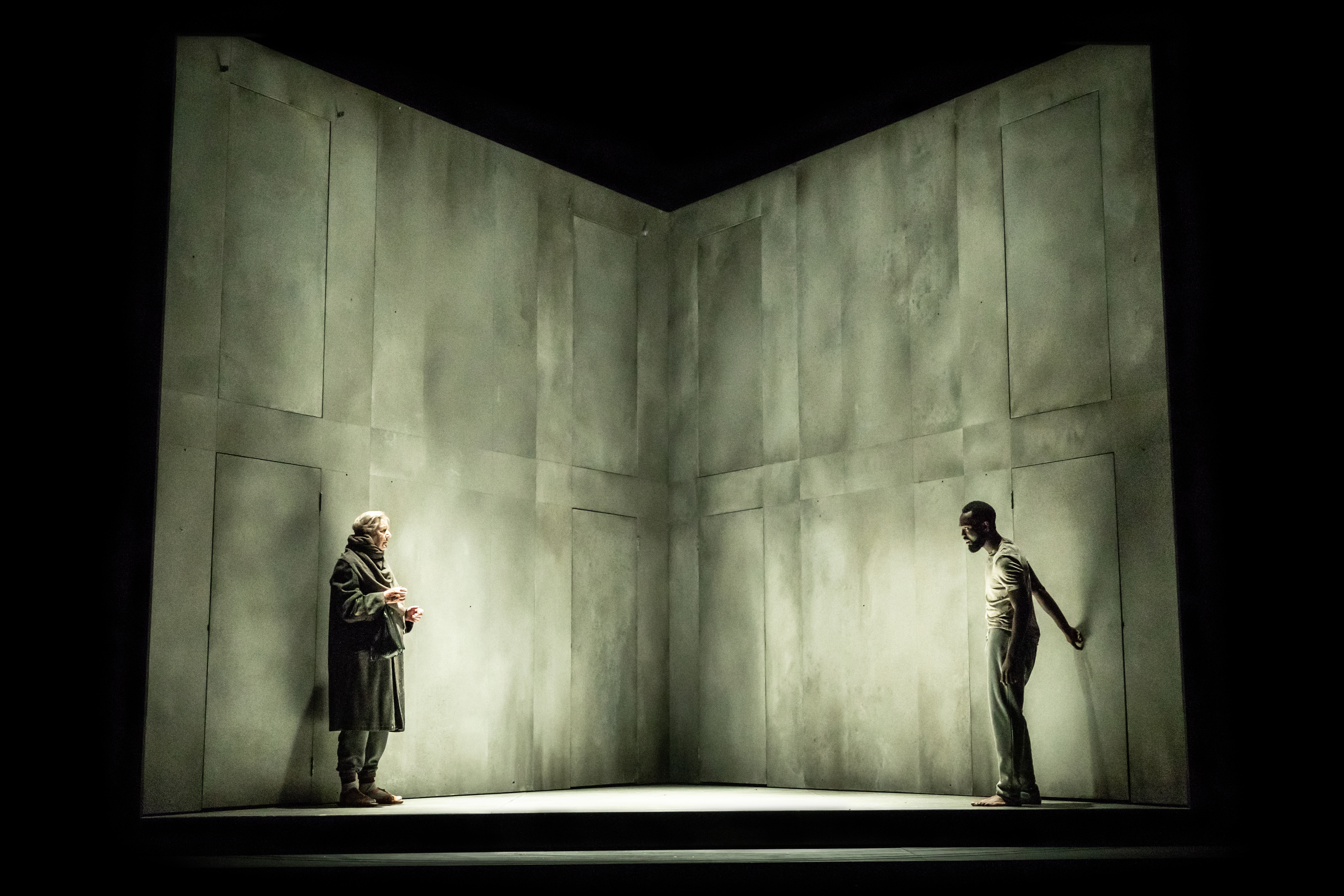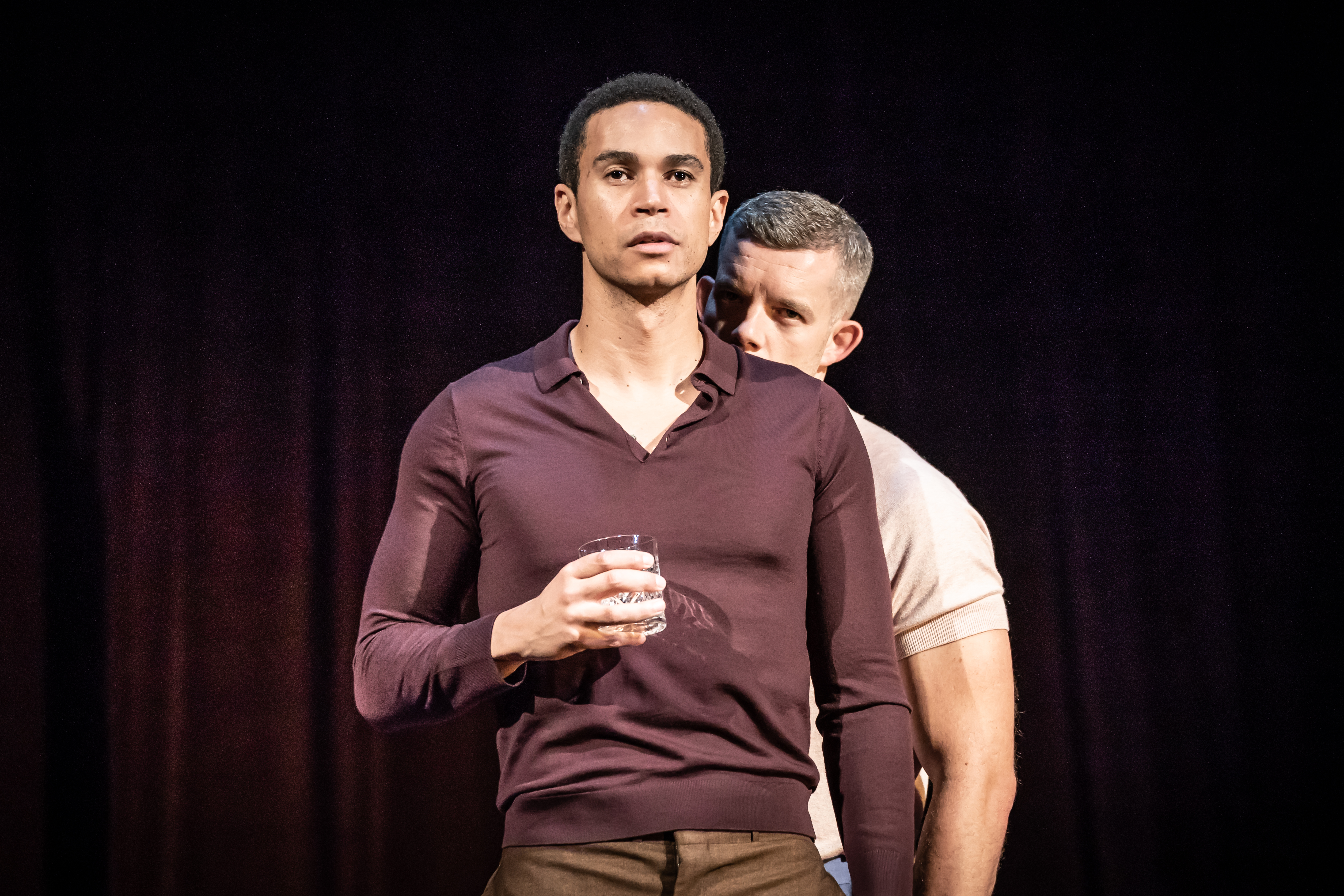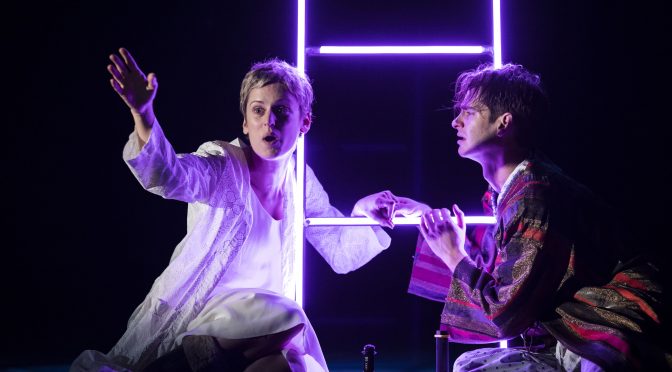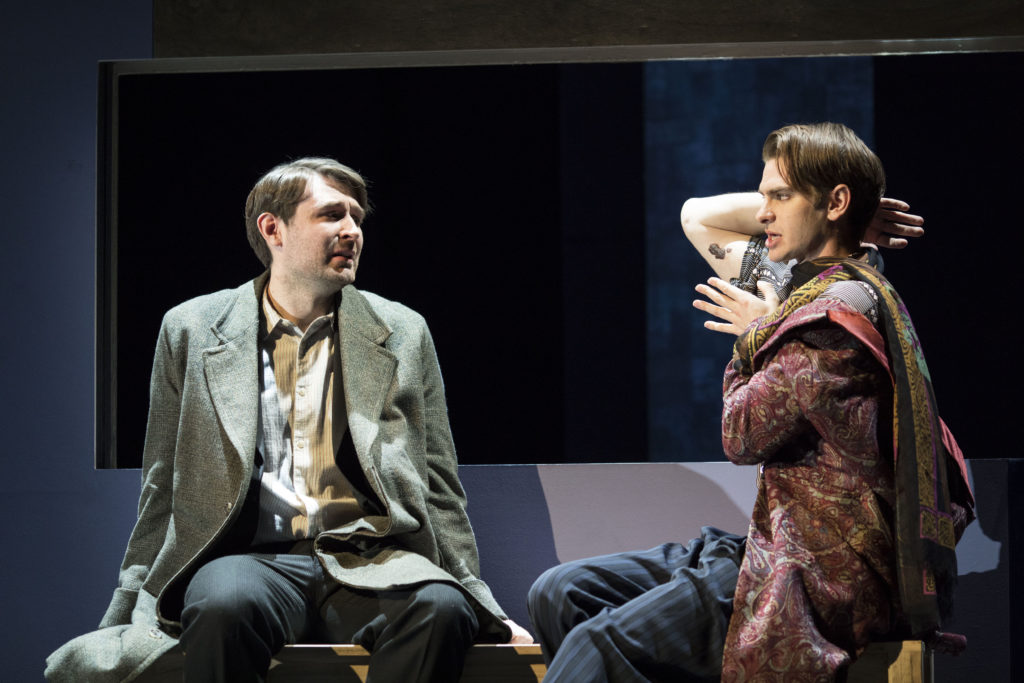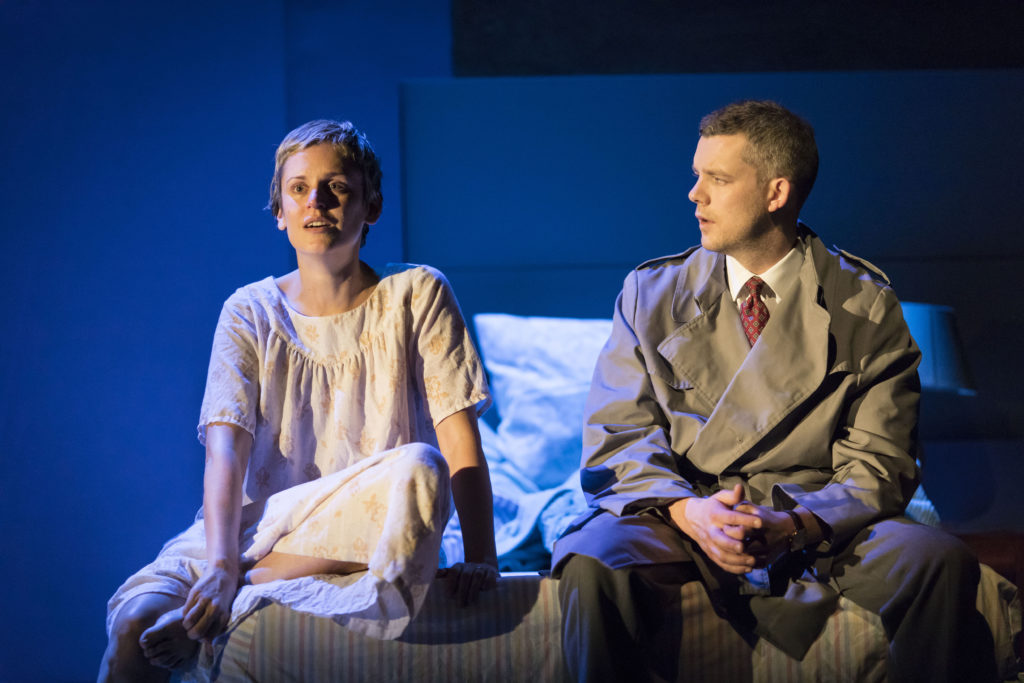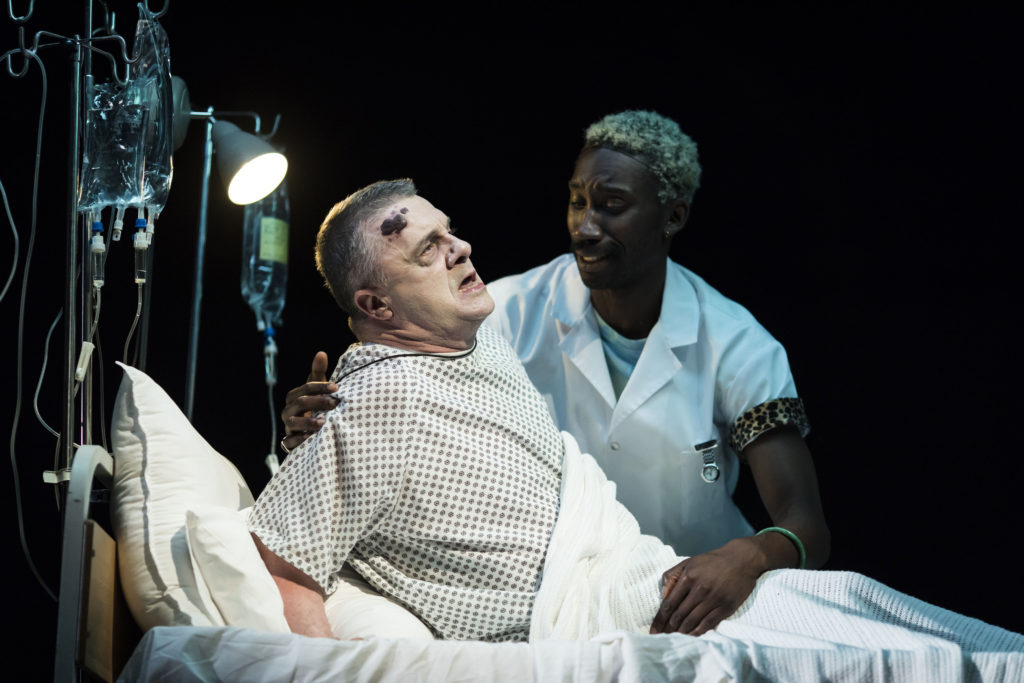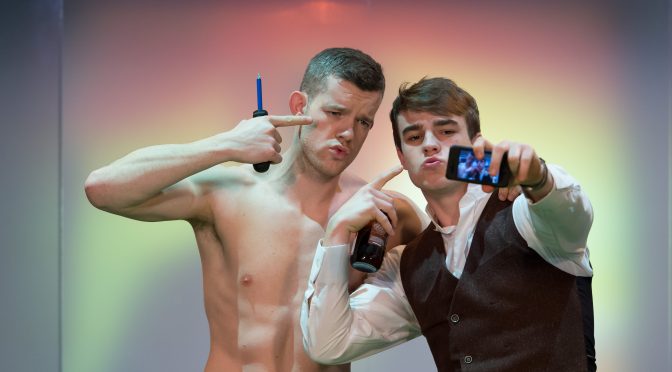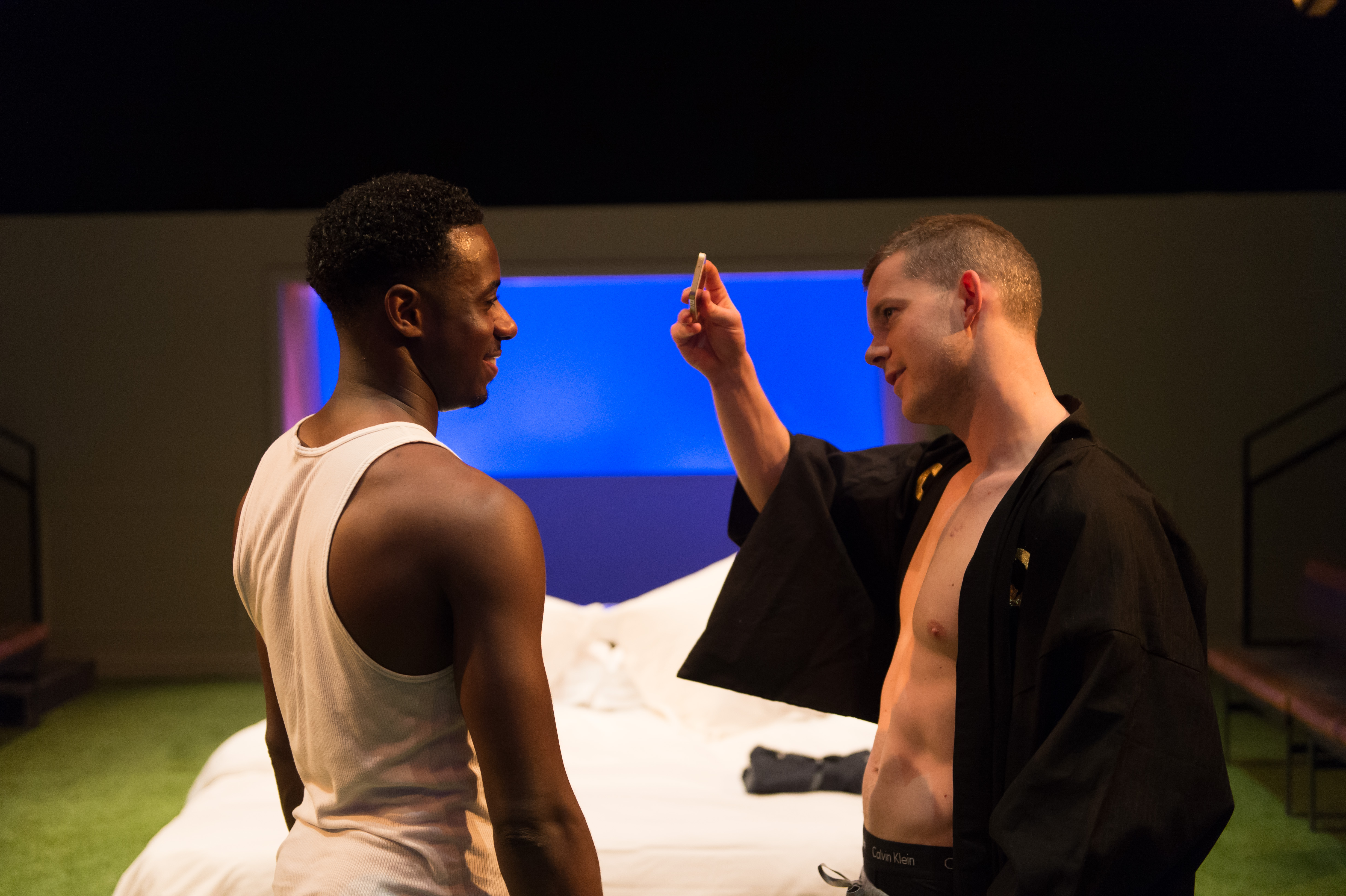I’ve loved Nick Payne’s play for a long time – since its première upstairs at the Royal Court in 2012. This exceptional two-hander, using the idea of multiverses from theoretical physics, presents diverse possibilities within one relationship. Deservedly a huge hit, Constellations is a must-see that is getting better with age. I wonder in what universe we can start calling it a modern masterpiece?
With this revival of Michael Longhurst’s production, also seen in the West End and on tour, the headline news is that four groups of performers will tackle the fantastic roles. Take your pick from Sheila Atim and Ivanno Jeremiah, Peter Capaldi and Zoë Wanamaker, or Anna Maxwell Martin and Chris O’Dowd. The exciting possibilities reflect the different outcomes within the text – a very smart idea.
A fourth option intrigued me more than the other talented combinations – Omari Douglas and Russell Tovey. Constellations wasn’t written with a gay couple in mind. Would the play or text change? As it happens, tweaks are minimal and the play isn’t altered a jot: it’s just as funny and moving as before. And both performers have taken every advantage of the opportunities within Payne’s script.
It’s not quite fair to say that Tovey supplies the laughs and Omari the tears. The roles point towards this, but both performers embrace the short scenes with different outcomes and swiftly altering emotions that the play features. But Tovey’s comedy skills really are excellent – there are proper belly laughs in the play. And Omari is heart-breaking as Payne develops his theme of mortality with fantastic skill.
The text isn’t just rewarding for performers. If you’re new to it Constellationswill stay with you a long time. Pulling out universals from the multiverses we encounter makes for powerful stuff. Or, appropriately enough, if you have seen the play before, your reactions might change. For me, Longhurst brings home how clear Payne’s text is: for complex ideas about science and free will the exposition is excellent. And maybe it’s my own age, but the play is much more moving than I recall.
While I remember being moved to tears all those years ago, I cried even more this time around. And I wasn’t alone. A sell-out show with no social distancing, the production received a fantastic reception from the audience. A keenness to talk as soon as the lights come up is, like the show itself, a thrill to experience. Nearly ten years on, there’s still a fantastic buzz about – in my universe anyway – this modern masterpiece.
Until 12 September 2021
Photo by Marc Brenner

